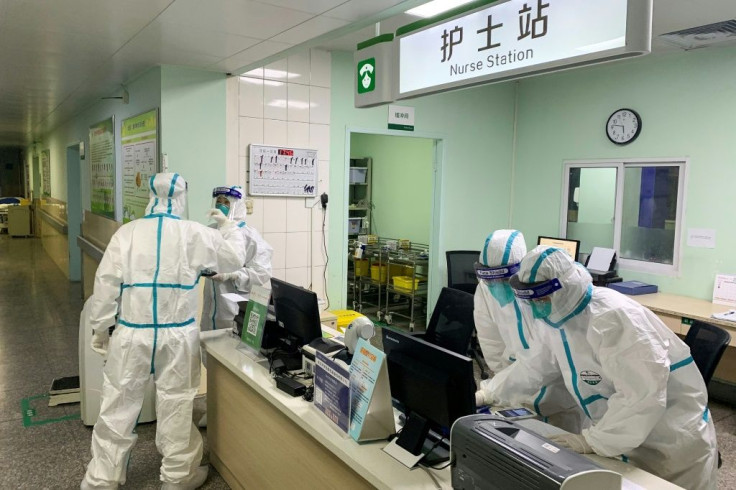China Locks Down Cities, Shuts Transportation, To Prevent Spread Of Deadly Virus

KEY POINTS
- Wuhan is believed to be the epicenter of the virus
- Nearby cities of Ezhou and Huanggang have also enacted lockdown measures
- More than 600 people have been infected by the virus
Chinese authorities are moving rapidly to try to contain a coronavirus that has already killed at least 17 people and infected hundreds of others by locking down cities, shutting down transportation and canceling outdoor events.
The industrial capital of Hubei province, Wuhan, believed to be the epicenter of the virus, has been placed under total lockdown as its 11 million residents are banned from leaving the city. All of the deaths from the virus thus far have occurred in Wuhan. Most of these people were either elderly – average age of 73 – or already in poor health.
The nearby cities of Huanggang and Ezhou are under similar tight restrictions – most buses, railways, subways, airports, ferries have been closed.
In Wuhan, panicked residents have hoarded food and supplies, emptying local stores, while seeking to ride out the crisis in the relative safety and isolation of their homes. Gas stations and pharmacies have also experienced an overwhelming demand for their products, including facemasks which are required for anyone out in public.
The streets of Wuhan were empty and quiet while police, SWAT teams and paramilitary troops guarded the city’s train station.
BBC reported that a doctor in Wuhan was very concerned about the spread of the virus.
"In the last two weeks, there has been an alarming rate of [the] spread," she said. "I am scared because this is a new virus and the figures are alarming. The hospitals have been [flooded] with patients, there are thousands, I haven't seen so many before. They have to wait for hours before they see a doctor -- you can imagine their panic. It's a new virus, so there isn't much information."
Huanggang, a city of about 7.5 million east of Wuhan, has suspended bus and rail systems from midnight, and asked residents not to leave the city. City officials have also closed cafes, cinemas and theatres.
Ezhou, a city of about 1 million people located just south of Huanggang, has closed its railway stations.
James Gallagher, health and science correspondent at BBC News, wrote that “in less than a week, we’ve gone from 40-odd cases [of the virus] to more than [600]. But this is hugely misleading as it is the result of the Chinese authorities massively increasing the amount of testing. So they are finding the cases that are already out there rather than detecting ‘new’ infections.”
Another challenge, Gallagher added, is that “we don’t know when a coronavirus patient becomes infectious to other people. Flu can spread from person to person before symptoms even appear and that allows it to spread incredibly rapidly. Other viruses become infectious only once the disease is more advanced and that slows the pace of an outbreak.”
Dr. Gauden Galea, the World Health Organization’s representative in China, told Associated Press: “To my knowledge, trying to contain a city of 11 million people is new to science. It has not been tried before as a public health measure. We cannot at this stage say it will or it will not work.”
Now as hundreds of millions of Chinese prepare to travel during the long New Year holiday, experts fear the virus will spread.
“Even if [the number of cases] are in the thousands, this would not surprise us,” Galea said.
Chinese officials are sensitive to criticism sparked by their handling of the SARS outbreak in 2002-2003, which killed some 800 people. At that time Beijing authorities were accused of withholding information about the disease.
Now President Xi Jinping has emphasized that transparency is a top priority.
“Party committees, governments and relevant departments at all levels must put people’s lives and health first,” Xi said Monday. “It is necessary to release epidemic information in a timely manner and deepen international cooperation.”
© Copyright IBTimes 2025. All rights reserved.





















